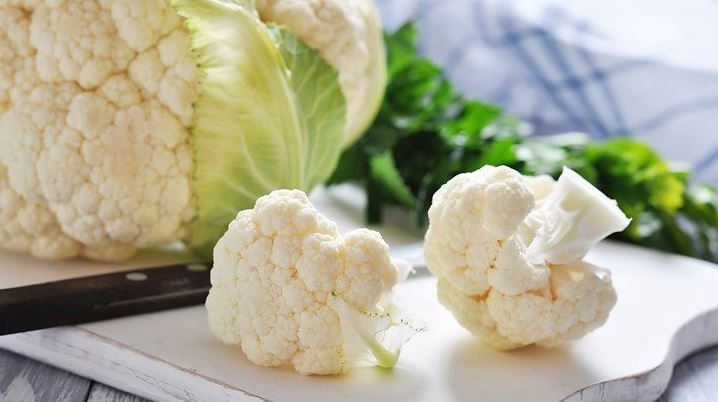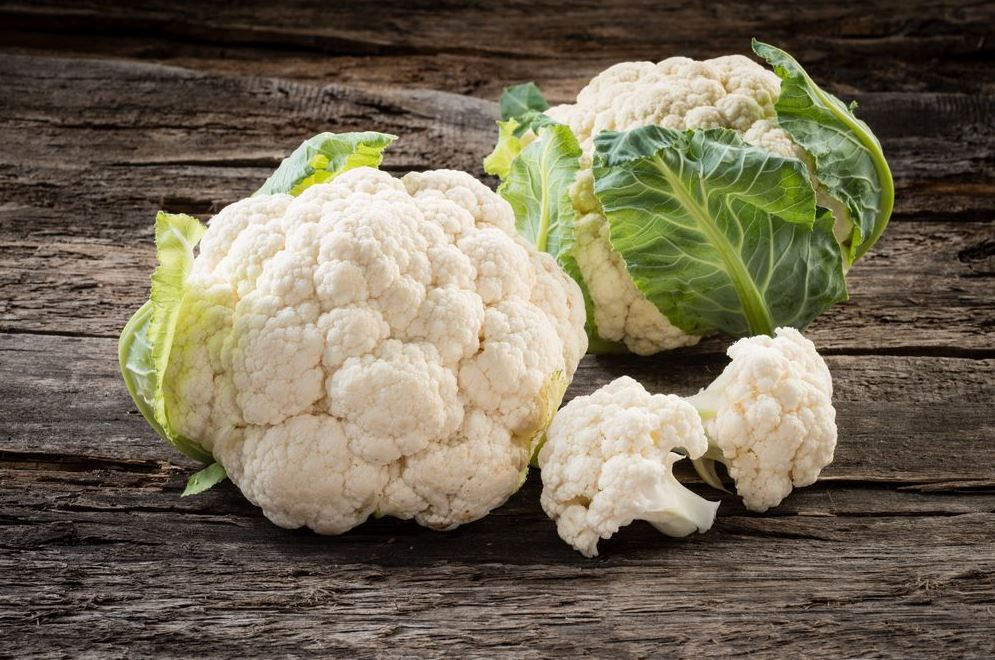The auliflower Nutritional Value A Food for Your Diet
Cauliflower is renowned for its culinary versatility and exceptional nutritional value. As a member of the cruciferous family, which includes broccoli and kale, this humble vegetable has evolved beyond its traditional roles to become a staple in both classic and innovative dishes. Its subtle flavor and unique texture make it an ideal substitute for various less healthy ingredients, enabling a nutritious diet without compromising on taste. The cauliflower nutritional value enhances its appeal, making it a favored choice for health-conscious cooks.
Cauliflower’s rise in popularity can be largely attributed to its numerous health benefits. It’s packed with essential nutrients, including vitamins, minerals, and antioxidants, all of which play crucial roles in maintaining overall health. One of the standout features of cauliflower is its low calorie count, which makes it particularly appealing to those managing their weight. A single cup of raw cauliflower contains just 27 calories, yet is rich in dietary fiber and vitamins like C, K, and B6.
Moreover, the health benefits of cauliflower extend beyond basic nutrition. It is a potent ally in the prevention of several chronic diseases. Studies have shown that the compounds in cauliflower can reduce inflammation, combat oxidative stress, and even hold anticancer properties. Additionally, the high fiber content supports digestive health and can prevent various gastrointestinal disorders. For those looking to manage their weight, the fiber also promotes feelings of fullness, helping to reduce overall calorie intake.
In essence, cauliflower offers a powerful combination of health benefits and culinary versatility, making it an invaluable addition to a balanced diet. Whether used in roasted side dishes, as a low-carb rice substitute, or even in a gluten-free pizza crust, cauliflower proves that healthy eating can be both delicious and imaginative.
| Aspect | Details |
|---|---|
| Culinary Versatility | Cauliflower is valued for its subtle flavor and texture, making it a versatile substitute in various dishes, from roasted sides to gluten-free pizza crusts. |
| Nutritional Profile | Low in calories but high in dietary fiber, vitamins C, K, and B6. A single cup of raw cauliflower has just 27 calories. |
| Health Benefits | Offers a range of health advantages, including reducing inflammation, combating oxidative stress, and possessing anticancer properties. Its high fiber content aids digestive health and helps manage weight by promoting fullness. |
| Role in Diet | An invaluable addition to a balanced diet, ideal for weight management and as a healthy substitute for less nutritious ingredients. |
Contents
Health Benefits of Cauliflower
Cauliflower, a cruciferous vegetable often overshadowed by its green cousin broccoli, is gaining recognition not only for its culinary flexibility but also for its substantial health benefits. This versatile vegetable is not just a side dish but a powerhouse of nutrients that can bolster health in numerous ways. Here’s an exploration of the health benefits of cauliflower, underlining why it should be a staple in your diet.

1. Nutrient Density
Cauliflower boasts an impressive nutritional profile. Despite being low in calories, it is rich in vital nutrients that are essential for overall health. A single cup of raw cauliflower, approximately 107 grams, provides a mere 27 calories, yet it is packed with a variety of vitamins and minerals. It is an excellent source of Vitamin C, providing 58% of the Daily Value (DV), and also offers significant amounts of Vitamin K (14% DV), Vitamin B6 (12% DV), and folate (15% DV). Additionally, it contains other important minerals such as potassium, manganese, magnesium, and phosphorus. This combination of nutrients makes cauliflower not just a filler food but a key component of a balanced diet.
2. High in Fiber
Cauliflower is particularly high in fiber, containing 2 grams per cup, which is about 7% of the daily requirement. Dietary fiber is crucial for digestive health as it helps maintain bowel regularity and prevents constipation. It also feeds the healthy bacteria in your gut, which are essential for both digestion and overall health. Furthermore, fiber has been linked to a reduced risk of several chronic diseases, including heart disease and diabetes, by helping to regulate blood sugar levels and reduce cholesterol levels.
3. Rich in Antioxidants
Antioxidants are vital in protecting the body against damage from free radicals and inflammation. Cauliflower is rich in glucosinolates and isothiocyanates, two groups of antioxidants that have been shown to slow the growth of cancer cells. These substances are particularly effective in preventing various types of cancers, including lung, colorectal, and prostate cancer. Cauliflower also contains other antioxidants such as carotenoids and flavonoids, which reduce oxidative stress and may lower the risk of several chronic diseases including heart disease.

4. Weight Management
Cauliflower’s role in weight management can be attributed to its low caloric content combined with a high nutrient density. With only 27 calories per cup and a high water content of 92%, it’s an excellent food for those looking to lose or manage weight. It can also replace higher-calorie foods like grains and is often used in recipes as a substitute for rice and flour, thus helping to reduce overall calorie intake while still providing satiety.
5. High in Choline
Choline is an essential nutrient that many people do not get enough of. Cauliflower is a good source, with one cup providing about 10% of the recommended intake. Choline plays a critical role in brain development, the synthesis of neurotransmitters necessary for a healthy nervous system, and maintaining the integrity of cell membranes. Moreover, it helps in the metabolism and transportation of lipids to prevent fat accumulation in the liver.

6. Contains Sulforaphane
Sulforaphane is another potent compound found in cauliflower. It has gained attention for its potential to inhibit the progression of cancer cells. Research has demonstrated that sulforaphane can interfere with harmful enzymes that promote tumor growth, and it might also have protective effects against heart disease by improving blood pressure and kidney function. Although more human studies are needed, the existing research on sulforaphane offers promising insights into its beneficial effects on health.
7. Low-Carb Alternative
For those following a low-carb or ketogenic diet, cauliflower is an indispensable ingredient. It can effectively replace grains and legumes in many dishes, providing a much lower carbohydrate content. For example, when grated, cauliflower can be used as a rice substitute, made into pizza crusts, or even used in place of flour in baking recipes. This versatility makes it an excellent option for increasing vegetable intake while adhering to dietary restrictions.
8. Ease of Incorporation into Diet
One of the most compelling aspects of cauliflower is its ease of incorporation into any diet. It can be eaten raw, steamed, roasted, or sautéed, making it a practical and easy addition to meals. Its mild flavor allows it to blend seamlessly into soups, salads, and casseroles. Moreover, cauliflower is affordable and widely available in most grocery stores, making it accessible to a broad audience.

In conclusion, the myriad health benefits of cauliflower—from its rich nutrient content and high fiber levels to its antioxidants and versatility in cooking—make it an exceptional vegetable. Its potential to prevent disease, aid in weight management, and replace higher-calorie foods in recipes makes it a valuable addition to any meal, underscoring the importance of including cauliflower in a balanced and healthy diet.
| Health Benefit | Details |
|---|---|
| Nutrient Density | Packed with vitamins C, K, B6, folate, and essential minerals. Provides significant nutrients while being low in calories, making it a staple in balanced diets. |
| High in Fiber | Contains 2 grams of fiber per cup, aiding in digestive health, reducing the risk of chronic diseases, and helping to maintain bowel regularity. |
| Rich in Antioxidants | Includes glucosinolates and isothiocyanates, effective in slowing cancer cell growth and preventing various types of cancers. Also rich in carotenoids and flavonoids to combat oxidative stress. |
| Weight Management | Low in calories and high in water content, ideal for weight loss. Used as a low-calorie substitute for grains in various recipes, enhancing satiety without high calories. |
| High in Choline | Provides choline, essential for brain development, neurotransmitter synthesis, and maintaining cellular structure. Helps prevent fat accumulation in the liver. |
| Contains Sulforaphane | Potent compound that may inhibit cancer cell progression and improve cardiovascular health. Demonstrates potential protective effects against heart disease and cancer. |
| Low-Carb Alternative | Perfect for low-carb and ketogenic diets, replacing grains and legumes in meals, such as using grated cauliflower as a rice substitute or in pizza crusts. |
| Ease of Incorporation into Diet | Easy to add to any meal, whether raw, steamed, roasted, or sautéed. Mild flavor blends well in soups, salads, and casseroles, and is readily available and affordable. |
Cauliflower, once a humble side dish, has emerged as a superstar in the realm of healthy eating. Its array of health benefits, combined with its culinary versatility, makes it an invaluable addition to any diet. This conclusion aims to recapitulate the numerous advantages of integrating cauliflower into your daily meals and inspire you to make it a staple in your kitchen.
Cauliflower’s remarkable nutrient density stands out as one of its most compelling attributes. Low in calories yet rich in vital nutrients, it provides a substantial portion of the daily requirements for vitamins such as C, K, and B6, along with minerals like potassium, manganese, and magnesium. This makes cauliflower not just a filler food but a substantial contributor to overall health, aiding everything from immune function to bone strength.
The high fiber content of cauliflower is another boon for health enthusiasts. With a significant amount of fiber packed into each serving, cauliflower helps promote digestive health, enhances gut function, and can reduce the risk of several chronic conditions such as heart disease, stroke, and diabetes. Fiber’s role in maintaining a healthy digestive tract cannot be overstated—it supports regular bowel movements and fosters a healthy gut microbiome, which is essential for overall health.
Antioxidants in cauliflower provide robust protection against cellular damage and inflammation. The presence of glucosinolates and isothiocyanates, particularly noted for their cancer-fighting properties, highlights cauliflower as a potent anti-cancer food. These compounds have been shown to slow the growth of cancer cells and may offer protective effects against various forms of this pervasive disease. Additionally, other antioxidants in cauliflower, such as carotenoids and flavonoids, help guard against other chronic diseases by combating oxidative stress.
Weight management is another area where cauliflower proves invaluable. Due to its low calorie and high water content, it can be a significant aid in any weight loss or management plan. The ability to substitute high-calorie foods with cauliflower means that one can enjoy a range of dishes—from rice and mashed potatoes to pizza crusts and even desserts—without the guilt associated with high caloric intake. Its role in promoting satiety further helps in reducing overall calorie consumption, making it a favorite among dietitians and those aiming to shed weight.
Cauliflower is also a rich source of choline, an essential nutrient that supports several vital body functions, including brain development and liver health. The prevalence of choline deficiency in many diets makes cauliflower an even more important food for those needing to boost their intake of this critical nutrient.
Moreover, the presence of sulforaphane in cauliflower provides promising health benefits, particularly in terms of cancer prevention and heart health. Its potential role in reducing blood pressure and combating diabetes makes it a power-packed vegetable that can tackle multiple health issues simultaneously.
The adaptability of cauliflower in culinary uses also enhances its appeal. Whether raw or cooked, it can be prepared in myriad ways to suit any palate or dish. From simple steamed florets to creative uses like cauliflower tortillas and hummus, the options are endless. This adaptability not only makes it easy to incorporate into meals but also helps maintain interest and enjoyment in healthy eating.
In conclusion, the wide-ranging health benefits of cauliflower—from nutrient density and high fiber content to its rich supply of antioxidants and low-calorie nature—make it an essential component of a healthy diet. It’s a vegetable that supports not just one aspect of health, but contributes broadly to overall well-being. Whether you’re looking to boost your nutrient intake, manage your weight, or simply enjoy a versatile and tasty vegetable, cauliflower offers something for everyone. I encourage you to explore the various ways to include this exceptional vegetable in your meals. Let cauliflower transform your diet, enrich your health, and bring creativity to your cooking. Embrace this powerhouse vegetable and make it a part of your regular diet to reap the myriad benefits it offers.
Cauliflower -Essential Cauliflower Recipes Baked Perfection
Nutritious Cauliflower Rice Dishes for Busy Lifestyles
Delicious Cauliflower Roasted Recipe for Any Occasion
Comprehensive Guide to Cauliflower Steaks Roasted Perfection
Costco Cauliflower Rice Nutritional Benefits and Versatility
Quick Guide to Frozen Cauliflower Recipes Delicious
A Versatile Recipe for Delicious Full Roasted Cauliflower
